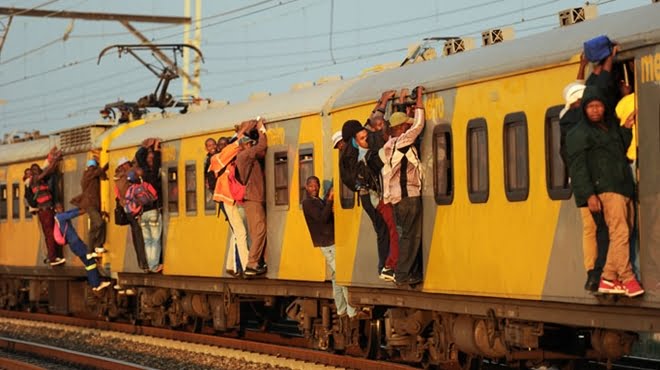The Metrorail crisis is having a devastating effect on the economy of the Western Cape, with businesses left hamstrung and organised labour decrying job losses on the back of a poor, unsafe and unreliable commuter rail service.
Cosatu Western Cape general secretary Tony Ehrenreich said businesses, particularly the manufacturing sector, had been hit hard.
He said the crisis made it difficult for some businesses to plan their production platforms efficiently as they did not know whether or when workers would arrive for work.
“If you can’t plan, that makes you inefficient and your competitors will have an advantage over you. In the manufacturing sector, businesses have a 5% or 10% price advantage if their stock is produced locally. Now that will be gone and importers will take the market share.”
Ehrenreich said Metrorail’s failure to resolve the crisis timeously was putting the economy and jobs of commuters under threat.
“It has a negative effect all round. And this is all because they have failed to put in place a safety plan that works despite a Constitutional Court ruling that was made about eight years ago,” Ehrenreich added.
This week, Metrorail’s central line, which carries commuters from the Cape Flats, remained closed after safety concerns following the fatal shooting of a security guard at Chris Hani station, Khayelitsha, on January 9, and the derailment of a train used for network inspection on the central line Thursday.
Schools re-opened on January 16 and other businesses will do so this week and it is expected that the effects of a suspended service would be felt the hardest.
The hospitality industry was, like other businesses, also impacted by the crisis, according to Federated Hospitality Association Southern Africa (Fedhasa), Cape Town president, Jeff Rosenberg.
“There’s a cost factor involved. Everybody is affected. The people are suffering and indirectly the businesses.
“When the service is disrupted they have to go and look for other finances to use other modes of transport. It’s not the best timing,” Rosenberg added.
The United National Transport Union (Untu) general secretary, Steve Harris, said the impact of job losses would be devastating.
“It’s widely believed that one working-class person financially supports an average of eight people. And if they lose their job as the result of trains not being on time, the consequences can be devastating. The crisis has a steam-roller effect,” said Harris.
The Cape Chamber of Commerce and Industry said many firms in different areas had been affected in different ways and the body would have to undertake a survey to determine the extent of the impact.
Chamber president Janine Myburgh said the full effect of the rail closure would become apparent when businesses were up and running after the holidays.
Economic Opportunities MEC Alan Winde said although the economic impact could not be quantified. “We understand from business that the impact is widespread and significant.”
He appealed to employers to “exercise patience” with employees.
Grant also called on national government to act swiftly to resolve the safety and reliability issues.















